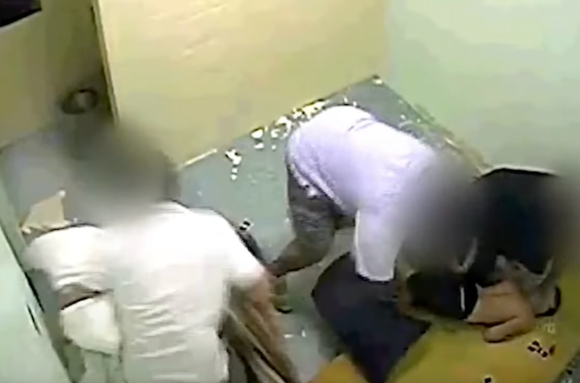Erin Patterson’s crimes shocked Australia, but decades of near-total isolation defy human rights, writes Clive Solomon.
ON 8 SEPTEMBER 2025, Justice Christopher Beale sentenced Erin Patterson – dubbed by the press the so-called "mushroom murderer” – to life in prison with a non-parole period of 33 years. The hearing was broadcast live, the first of its kind in Victoria. Justice Beale rightly said he had “no hesitation” in placing her crimes in the worst category of murder: three dead, one gravely injured, lives shattered.
But beyond the crimes, another truth emerged. For the 15 months leading to her sentencing, Patterson had been held in near-total solitary confinement. Locked alone in a cell for 22 hours a day with almost no human contact, she endured conditions that no human being can survive unscathed. Because of her notoriety, Corrections Victoria has made it clear she may remain in solitary-like conditions for decades. This is not justice. It is torture.
The United Nations Mandela Rules define “prolonged solitary confinement” as more than 15 days and explicitly prohibit it as cruel, inhuman and degrading. Yet Australia – a nation that abolished the death penalty decades ago and still boasts of its human rights record abroad – has effectively imposed a fate far worse than execution: decades in a box, alone. When a leading Western country so blatantly breaks international human rights law, the world must take note.
Medical science is unequivocal. Psychiatric and public health research shows that long-term isolation destroys minds: paranoia, hallucinations, depression, cognitive collapse, and an extreme risk of suicide. People emerge from months or years in solitary not rehabilitated but broken. To consign any prisoner to such conditions for decades is not a security measure. It is the deliberate annihilation of a human being.
And there are alternatives. Around the world, correctional systems manage high-profile or vulnerable prisoners without condemning them to decades of isolation. Protective custody units, structured interaction with staff, sunlight and exercise, small group contact — all can safeguard both the prisoner and the public without crossing into torture. To pretend that solitary confinement is the only option is not professionalism; it is cruelty.
This practice disgraces Australia internationally. We condemn other nations for their use of torture, degrading treatment, and inhumane prisons. Yet we now do it ourselves. Each day Patterson remains locked down in near-total isolation, we broadcast contempt for the very standards we helped create.
Her crimes were deliberate and devastating. Justice must punish. But punishment is not meant to annihilate. Life imprisonment is enough. Adding decades of solitary confinement makes it a sentence of state-sanctioned torture.
If Australia is serious about being a human rights nation, Corrections Victoria must find humane alternatives, and the Victorian Government must impose strict time limits and oversight on solitary confinement.
This is not just about Erin Patterson. It is about who we are as a people. If we cage even one prisoner in conditions worse than death, we diminish the humanity of us all.
Dr Clive Solomon (BSc Med, MBChB, FRACS) has worked as a surgeon, district councillor, hospital board member, and vocal patient advocate. He is the 2012 winner of the NZARH Charles Southwell Award for Championing the Values of the Enlightenment.
 This work is licensed under a Creative Commons Attribution-NonCommercial-NoDerivs 3.0 Australia License
This work is licensed under a Creative Commons Attribution-NonCommercial-NoDerivs 3.0 Australia License
Support independent journalism Subscribe to IA.












